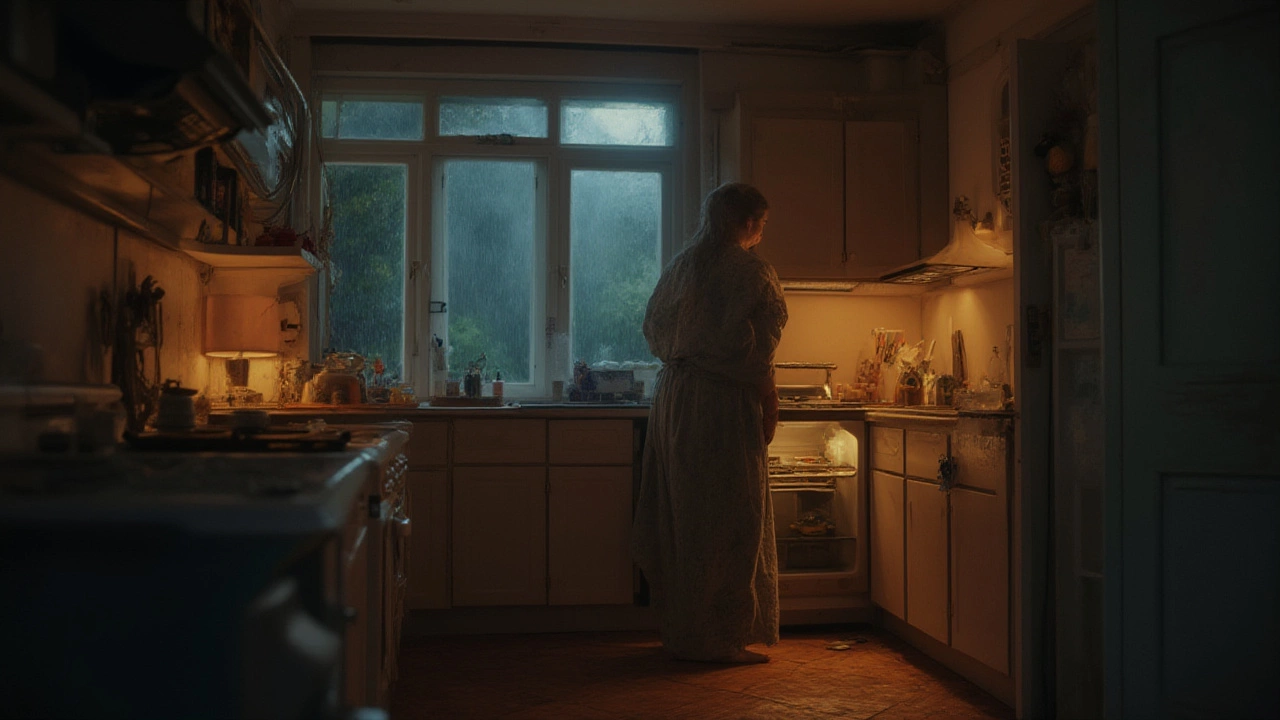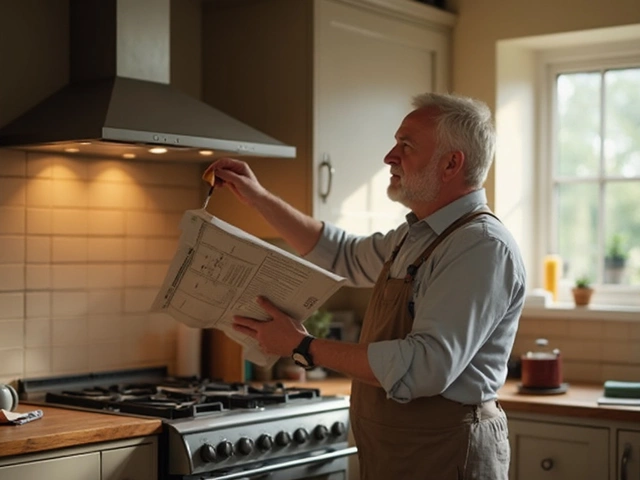If you’ve ever forgotten to turn off your oven before heading to bed, you’re not alone. A hot oven left on overnight can turn a simple cooking mistake into a serious fire risk. Below we break down why this happens, what signs to watch for, and how you can protect your home without spending a fortune on repairs.
When an oven runs for hours on end, it can overheat internal components like the heating element, thermostat, and wiring. Overheating weakens connections and can cause sparks, especially if there’s any food residue or grease inside. Those sparks can ignite combustible materials nearby – think curtains, wooden cabinets, or even the oven’s own insulation.
Another hidden danger is the buildup of heat inside the oven cavity. If the temperature climbs past the design limit, the thermal fuse may fail, and the oven could keep heating with no way to shut down automatically. That’s a recipe for a house fire.
First, make it a habit to glance at the oven control panel before you turn in. If the timer is set, double‑check that the cooking mode matches what you intended – bake, broil, or warm. A tiny mistake like leaving the broil setting on can raise the temperature dramatically.
Second, clear any spills or leftover food. Grease can melt, drip onto heating elements, and ignite. A quick wipe with a damp cloth after each use reduces that risk.
Third, use a timer or smart plug that cuts power after a set period. Many modern ovens have built‑in shut‑off timers, but an external plug‑in timer adds an extra safety net.
Stay calm. If you notice a strange smell or hear clicking, open a window for ventilation and turn off the oven using the main control knob. If the oven won’t shut down, flip the circuit breaker for that kitchen circuit – that stops the power instantly.
After it’s off, let the oven cool completely before inspecting the interior. Look for melted plastic, blackened spots, or a burnt smell. Those are signs the heating element or wiring may have been damaged.
If you see any of the following, it’s time to call an expert:
Our local Bognor Regis Appliance Repair Experts can diagnose the issue quickly. They’ll check the element, thermostat, and wiring, and let you know if a simple part swap will fix it or if a full oven replacement is needed.
If you’re comfortable with basic tools, replacing a faulty oven element is often a straightforward job. You’ll need a screwdriver, a new element that matches your oven model, and a multimeter to confirm the old part is dead. First, unplug the oven, remove the back panel, disconnect the wires, slide out the old element, and slide in the new one. Tighten the screws, reconnect the wires, and test the oven. If you’re unsure, it’s safer to let a qualified electrician handle it – especially for electric ovens where live voltage is involved.
Remember, regular maintenance cuts down on overnight hazards. A quick clean‑out every few weeks, checking door seals for wear, and scheduling a professional service annually keep the oven running safely.
Bottom line: never assume the oven will turn itself off. A few simple habits – checking the control panel, clearing spills, using timers – can stop a night‑time fire before it starts. And if something feels off, call in the pros. Your home, your family, and your peace of mind are worth the extra effort.

Leaving an electric oven on overnight sounds harmless, but it could spell real trouble. Learn the risks, facts, and safer options for your late-night cooking needs.

Extractor fan acting up? If you’re wondering who handles extractor fan replacement, this article breaks it down. Learn the difference between calling a pro and tackling it yourself, get tips on when to fix or swap out a fan, and find out what skills and tools make the job smooth. Real, practical advice from someone who's been around finicky fans and quick fixes. Don’t let poor ventilation keep bothering you—get the facts and decide what works best.

Thinking about replacing your electric oven on your own? This article breaks down what you need to know about doing it yourself— from basic safety to common pitfalls. Learn how tricky the process can get, which tools you might need, and when it's smarter to call a pro. Get tips to save money and avoid kitchen disasters. Designed for anyone who values a good meal and a working oven.

Ever wonder if switching your boiler on and off harms it? This article unpacks how boilers handle frequent power cycles, what really wears them out, and when switching off could save you cash or cause problems. Find out the best ways to run your boiler for both safety and savings. Practical tips and real facts—all in plain English. Avoid costly repairs by knowing how to treat your boiler right.

Wondering if it's worth repairing your electric oven or if you should just buy a new one? This article dives into the factors to consider, from cost effectiveness to the age of your appliance, helping you make an informed decision. We'll discuss common issues that can be fixed, when to call in a pro, and some smart tips to extend the lifespan of your oven. By the end, you'll know whether fixing or replacing is the better choice for your situation.

Exploring the value of repairing a freezer involves assessing various factors, such as the cost of repairs, the appliance's age, and the efficiency improvements of newer models. Understanding common freezer problems can help homeowners decide whether a repair is worthwhile. The decision should account for both economic and environmental perspectives, guiding when to repair or replace.